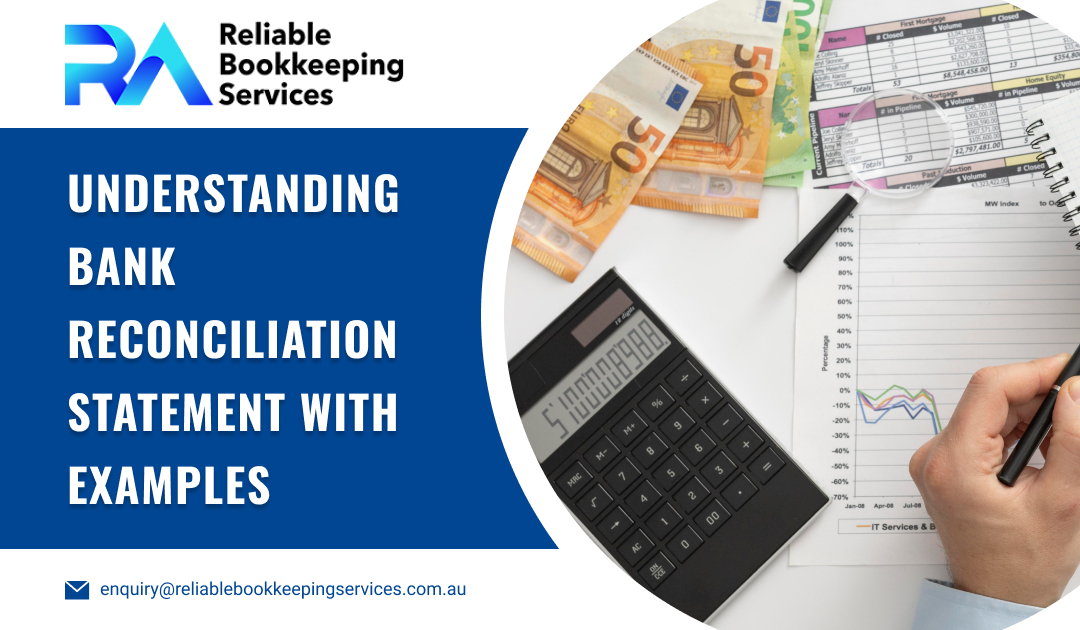As a business owner, you know the importance of managing and organising a business’s financial records. You will know that recording accurate records is not always an easy task. In this busy schedule, it is easy for any financial transaction to get lost and figures to get entered wrong. This is where the bank reconciliation statement comes to play its role. It is an important process that helps you know whether you have all records accurately recorded or not. Bank account reconciliation helps you monitor your accounts for any type of irregularity or fraud. In this blog, we’ll help you know what exactly bank account reconciliation is.e
What are Bank Reconciliations?
Bank reconciliation is the process of making sure that data entered in your business books and records in the bank account match. If they give you the same balance on any specified date, it means your accounts have been reconciled accurately. Bank account reconciliation is the most common method to ensure that everything has been recorded accurately and it is important for every business owner to reconcile their bank accounts.
To know more about this process, let’s understand bank reconciliation with examples: a restaurant processes a lot of transactions and gets a lot of cash in hand. They may reconcile daily to ensure everything matches and all the cash receipts match the bank account. On the other hand, a small store where a few transactions have been recorded – could reconcile on weekly or monthly basis.
Reasons Why Bank Account Reconciliation is Important
Bank account reconciliation may be a time-consuming task but hiring a professional bookkeeper for this task will save you time. Take a look at the points written below to know why you should reconcile your bank accounts:
To Keep an Eye on the Cash Flow of the Business
Managing cash flow is important for every business. Reconciling your bank accounts will help you know the relation between when money enters your bank account and when money enters your business, and plan how you collect and invest money.
To Identify Fraud
You can identify fraudulent activities within your business with the help of bank account reconciliation. For example, you recorded that you spent $10,000 in your business books, but according to your bank statement, you paid $500. This difference may seem small, but if you make this mistake every month, you may get into trouble. It can result from human error or fraud. However, with reconciliation, you can avoid this mistake.
To Know Your Business as it is
When you look at your business books, you want to know your business’s financial status. If your credit card statement, bank account, and business books don’t match, you could spend money you don’t have. Therefore, it is important to reconcile your bank accounts to ensure your business’s cash balance is accurate.
How often Should You Perform Bank Reconciliation?
Usually, it is suggested to perform bank account reconciliation every time you receive a statement from the bank. It is based on the number of transactions your business processes, you need to reconcile your bank accounts on a daily, weekly, or monthly basis. Once you have accurate records, a tax return accountant can easily prepare and file a tax return on your behalf.
Common Steps to Do a Bank Account Reconciliation
Your bookkeeper can help you reconcile your bank account on your behalf easily.
The first step involves gathering all your records. Bookkeepers need bank statements and business accounting records for a time period they are going to reconcile.
Make sure the starting balance on your accounting records and bank statement matches.
After verifying your opening balance, they will review your transactions.
If they spot that some items on your business’s account are not mentioned on the bank statement, they will add them. These items can be outstanding cheques, pending deposits, bank errors, and cash-in-transit.
In the same way, your business’s cash account also needs some adjustment.
Once they have compared all the transactions, they will compare the closing balance on the bank statement to your account.
Conclusion
Regardless of whether you have a small business or a large one, it is important to reconcile your bank accounts to ensure everything has been recorded accurately. For more bookkeeping solutions, you can get in touch with Reliable Bookkeeping Services providers.
Other Useful links:-

